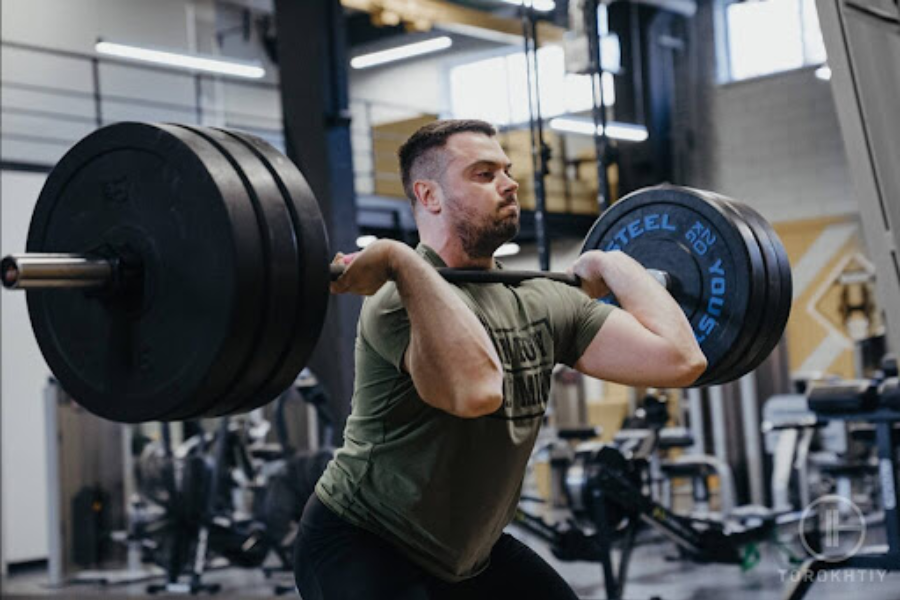“Exploring the Connection: Can Lifting Heavy Weight Above Shoulders Cause ETD Eustachian Tube Dysfunction?”
Introduction
Are you an enthusiastic lifter who enjoys pushing your limits? Have you ever wondered, “Can Lifting Heavy Weight Above Shoulders Cause ETD My Shoulders Cause Eustachian Tube Dysfunction (ETD)?” This question addresses concerns about whether performing overhead lifts with substantial weights might lead to issues with the eustachian tube. Although ETD is primarily linked to problems with the middle ear and eustachian tube rather than muscle strain, heavy lifting can indirectly contribute to increased intra-abdominal pressure and strain. This may potentially exacerbate ear-related issues in susceptible individuals. However, direct evidence connecting heavy overhead lifting specifically to ETD remains limited.
In this article, we’ll delve into the complex relationship between heavy overhead lifting and ETD. We’ll explore the mechanics of the eustachian tube, the impact of heavy lifting, and strategies to maintain both lifting performance and ear health.
Understanding Eustachian Tube Dysfunction (ETD)
What is ETD?
Eustachian Tube Dysfunction (ETD) occurs when the eustachian tube, which connects the middle ear to the throat, fails to open or close properly. This tube plays a crucial role in regulating ear pressure and allowing fluid to drain from the middle ear. When it does not function correctly, it Can Lifting Heavy Weight Above Shoulders Cause ETD leads to discomfort, hearing problems, or even infections.
Common Causes of ETD
ETD is typically caused by factors such as allergies, colds, sinus infections, or any condition leading to inflammation or blockage of the eustachian tube. It Can Lifting Heavy Weight Above Shoulders Cause ETD also be triggered by rapid changes in altitude or specific medical conditions.
Symptoms of ETD
Common symptoms of ETD include a feeling of fullness in the ear, muffled hearing, ear pain, and ringing in the ear (tinnitus). In severe cases, it Can Lifting Heavy Weight Above Shoulders Cause ETD result in dizziness and balance issues.
The Mechanics Behind Heavy Lifting
How Lifting Affects Your Body
When lifting heavy weights, particularly above your shoulders, your body experiences increased intra-abdominal pressure. This pressure is essential for stabilizing the spine and preventing injury during heavy lifts.
The Valsalva Maneuver
Many lifters use the Valsalva maneuver, which involves holding your breath and straining against a closed airway to enhance core stability. While effective for lifting heavy weights, this maneuver significantly increases pressure within the abdomen, chest, and even the head.
Strain and Blood Pressure
Heavy lifting Can Lifting Heavy Weight Above Shoulders Cause ETD cause a temporary spike in blood pressure. This increase in pressure affects various body systems, including the sensitive ear structures.
Can Lifting Heavy Weights Cause ETD?
Direct vs. Indirect Effects
There is no direct evidence that lifting heavy weights overhead causes ETD. However, the indirect effects of increased intra-abdominal and chest pressure might exacerbate ear-related issues in individuals who are already susceptible to ETD.
Case Studies and Anecdotal Evidence
While scientific studies specifically linking heavy lifting to ETD are limited, there are anecdotal reports from lifters who have experienced ear discomfort or symptoms of ETD after intense lifting sessions. These cases often involve improper lifting techniques or pre-existing ear conditions.
Factors That Exacerbate Risk
Certain factors might increase the risk of developing ETD symptoms during heavy lifting. These include:
- Improper Breathing Techniques: Incorrect breathing strategies Can Lifting Heavy Weight Above Shoulders Cause ETD lead to increased intra-abdominal pressure, exacerbating ear-related issues.
- Lack of Warm-Up: Failing to warm up properly Can Lifting Heavy Weight Above Shoulders Cause ETD strain your body, including your ears.
- Pre-existing Sinus or Ear Problems: Individuals with existing sinus or ear issues may be more susceptible to ETD symptoms during heavy lifting.
Proper Lifting Techniques to Reduce Risks
Breathing Techniques
Using proper breathing techniques, such as exhaling during the exertion phase of the lift, Can Lifting Heavy Weight Above Shoulders Cause ETD help reduce intra-abdominal pressure. Avoid holding your breath for extended periods during heavy lifts.
Gradual Progression
Gradually increasing the weight you lift and ensuring proper form Can Lifting Heavy Weight Above Shoulders Cause ETD help prevent excessive strain on your body, including your ears. This approach helps your body adapt to the physical demands of lifting.
Warm-Up and Cool-Down
Incorporating a thorough warm-up and cool-down routine prepares your body for the physical demands of lifting and helps mitigate any adverse effects. This routine Can Lifting Heavy Weight Above Shoulders Cause ETD include dynamic stretches, mobility exercises, and gentle stretching.
Consulting Healthcare Professionals
When to Seek Medical Advice
If you experience persistent ear pain, discomfort, or other symptoms of ETD after lifting, it’s essential to consult a healthcare professional. They Can Lifting Heavy Weight Above Shoulders Cause ETD diagnose any underlying issues and recommend appropriate treatments.
Preventive Measures
To minimize the risk of ETD, consider adopting the following preventive measures:
- Use Proper Lifting Techniques: Employ correct lifting techniques to avoid unnecessary strain on your body.
- Address Pre-existing Health Conditions: Manage any pre-existing health conditions that might increase your risk of ETD.
- Consult a Fitness Expert: A personalized training plan developed by a fitness expert or physical therapist Can Lifting Heavy Weight Above Shoulders Cause ETD help you achieve your lifting goals safely while minimizing the risk of ETD and other injuries.
Conclusion
While there is limited direct evidence linking heavy overhead lifting to Eustachian Tube Dysfunction (ETD), the indirect effects of increased intra-abdominal and chest pressure might exacerbate ear-related issues in susceptible individuals. By understanding the mechanics of heavy lifting, adopting proper techniques, and consulting healthcare professionals when needed, you Can Lifting Heavy Weight Above Shoulders Cause ETD continue to enjoy lifting while safeguarding your ear health.
Remember, your overall fitness and well-being are paramount. If you have concerns about ETD or other fitness-related issues linked to lifting, don’t hesitate to seek professional advice. Your health and safety should always come first, allowing you to pursue your fitness goals with confidence and care.


